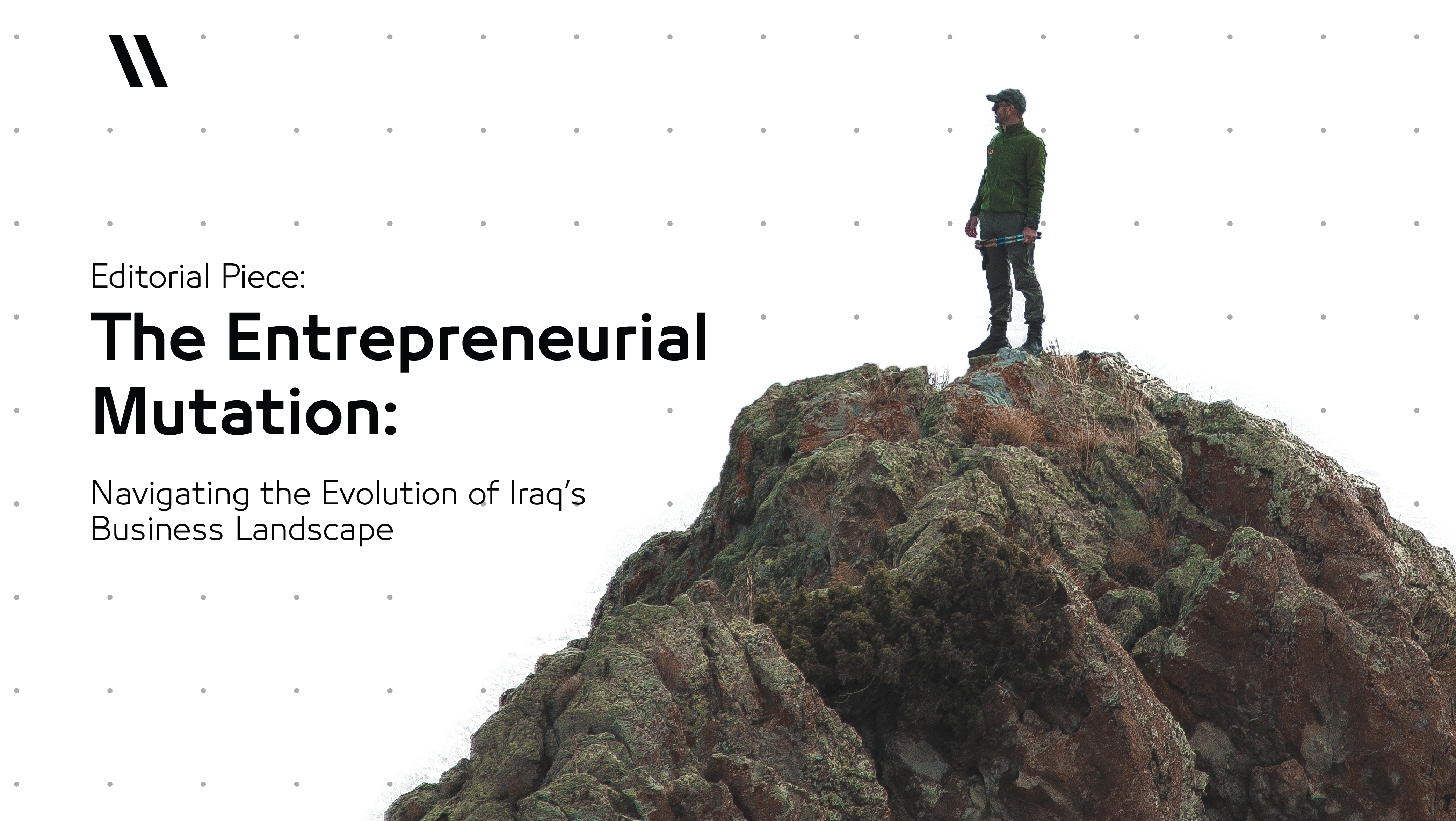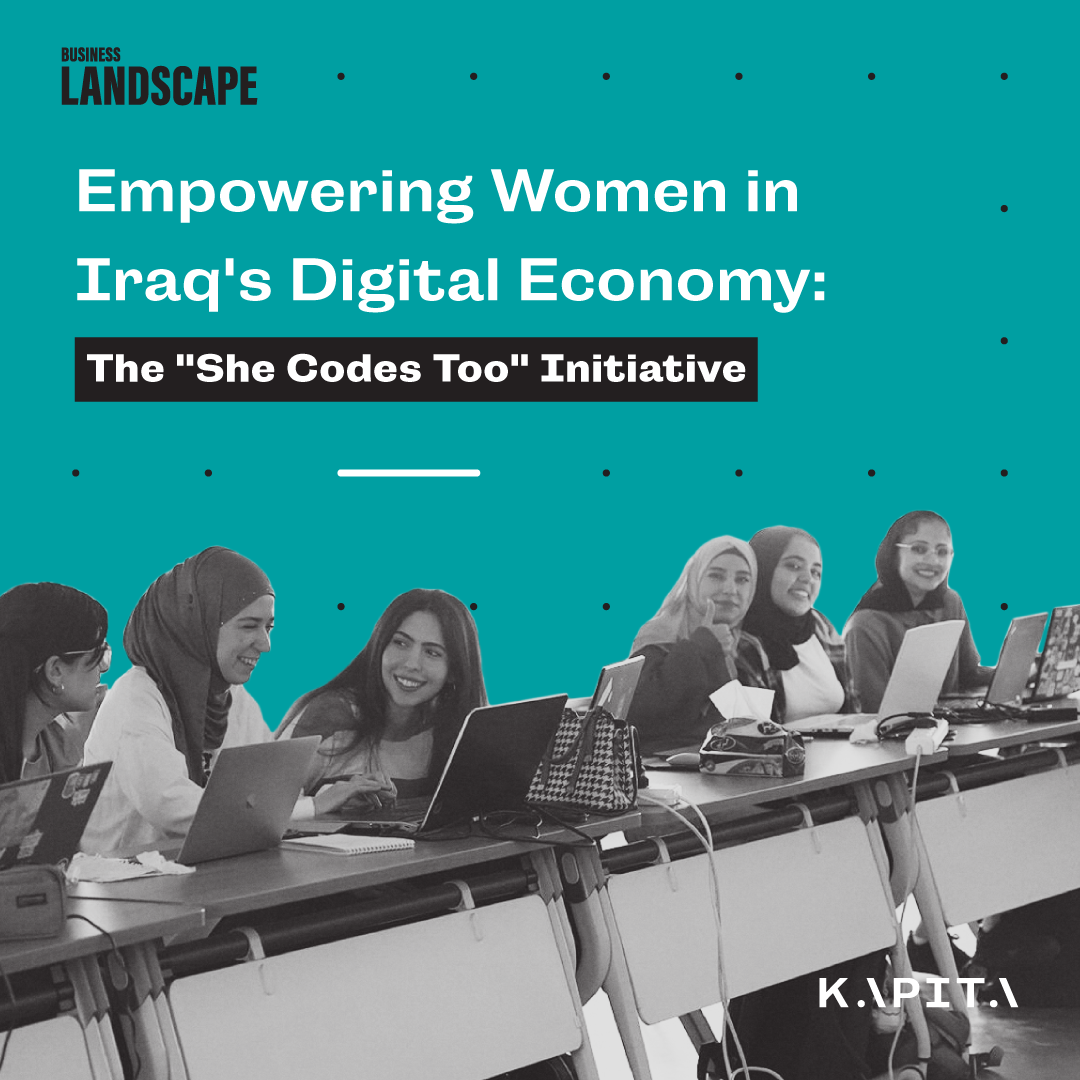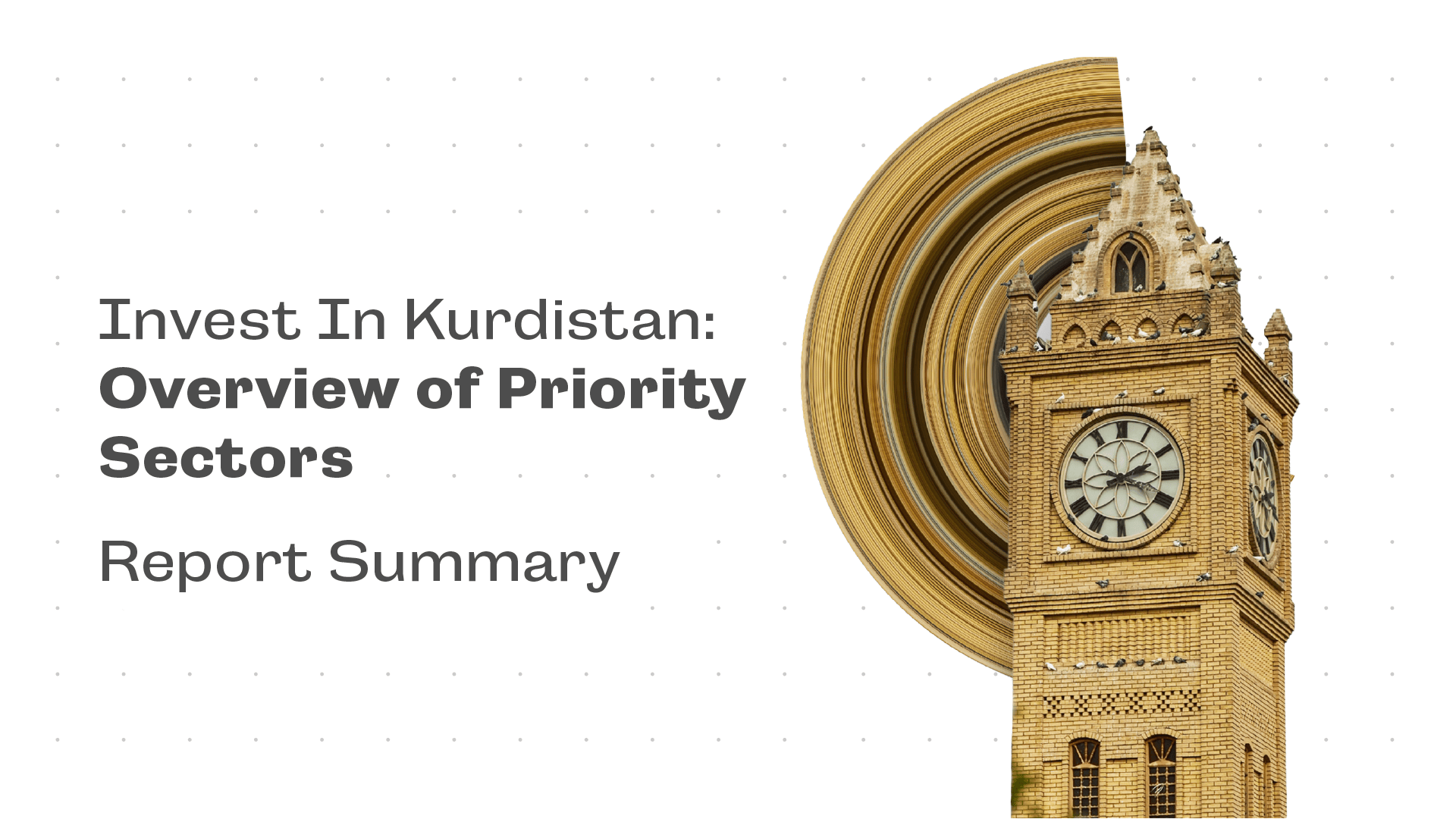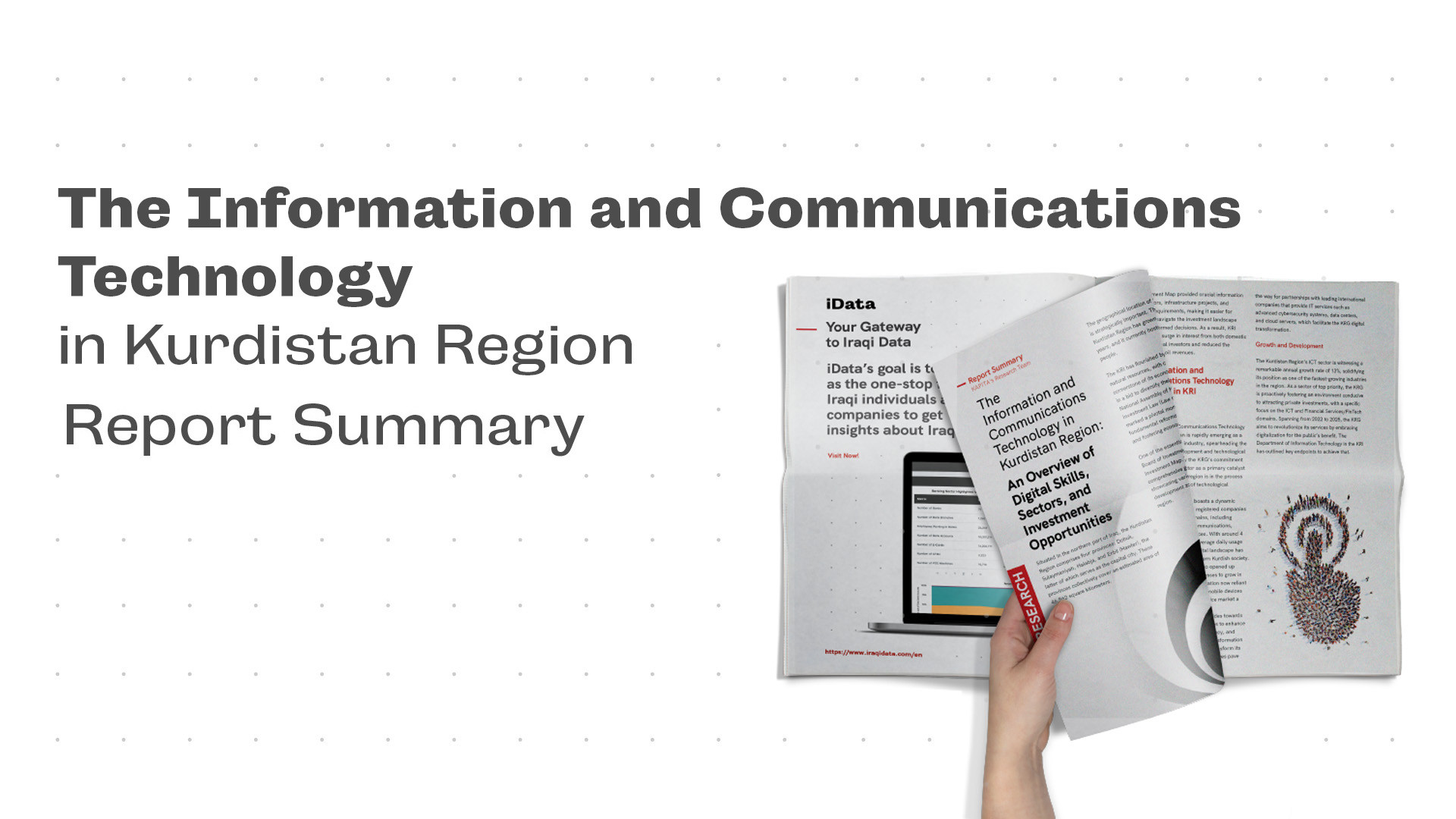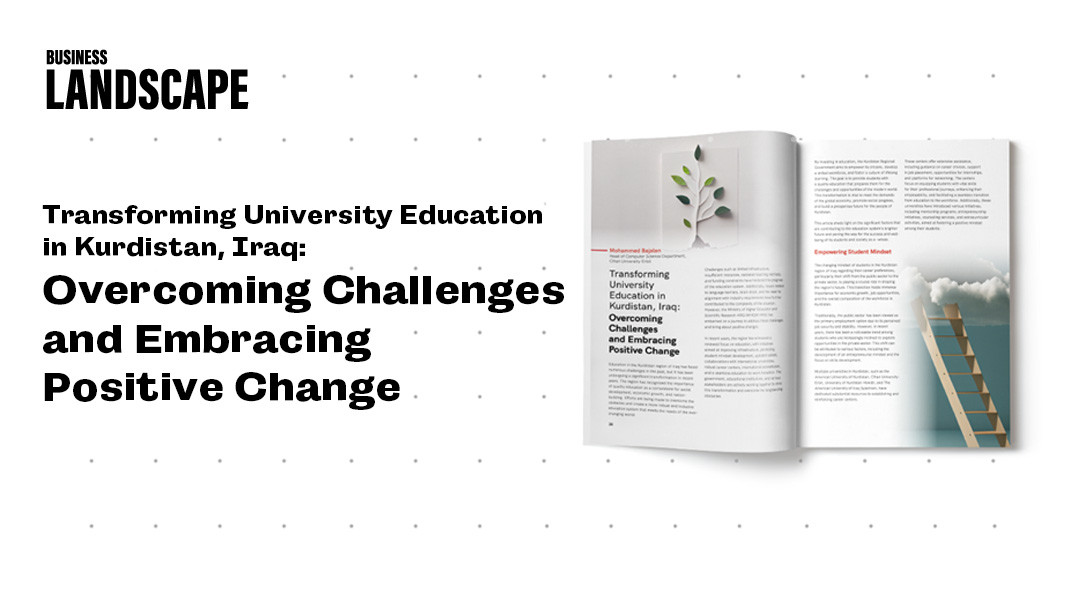The Entrepreneurial Mutation: Navigating the Evolution of Iraq's Business Landscape
Mohammed Jamal
Editor-In-Chief, Business LANDSCAPE Magazine
In the midst of change and challenges, Iraq is undergoing an entrepreneurial transformation. From a nation deeply reliant on its oil reservoirs and public sector employment, the push towards a dynamic private sector is gathering momentum. The reinvention of Iraq's business landscape is not just an economic necessity but also an essential step toward societal transformation.
A Vision of a Private-Sector Led Economy
Iraq's dependence on oil and its sprawling public sector is evident. With challenges ranging from unemployment to infrastructure deficits, the conventional economic drivers are proving insufficient. The ray of hope? A thriving private sector. Not only can the private sector lead the country towards a prosperous future, but it can also directly address Iraq's major challenges, like the urgent need to create job opportunities.
How can we set the stage for a flourishing private sector? The answer lies in fostering a robust entrepreneurial ecosystem. Such an ecosystem can offer innovative solutions, drive economic growth, and create employment. Although the Iraqi private sector did not have a similar path to other countries’ private sectors and was unable to adopt the significant developments that happened during the period of sanctions and economic constraints, the entrepreneurial ecosystem offers a mutation to this path, providing the private sector with the ability to skip multiple stages of development that it missed going through.
Despite the challenges, Iraq stands out in the Middle East and North Africa (MENA) region. With the fourth largest population in MENA and a whopping 60% of its citizens under the age of 25, Iraq holds enormous potential for businesses targeting a young, energetic demographic.
The Emergence of the Iraqi Startups Ecosystem
Since 2013, the Iraqi startup ecosystem has been in action. From tech communities to startup hackathons, there has been a surge in entrepreneurial activities. These initiatives, many of which were volunteer-driven, received substantial support from international funds, like Innovation for Development from UNDP. The emergence of entrepreneurial hubs, such as the first one in Baghdad, The Station, further indicated the development of this ecosystem. Furthermore, the later establishment of business accelerators and investment networks such as KAPITA Business Hub and its Iraqi Angel Investors Network signaled that the ecosystem is reaching a maturity phase. Simultaneously, startups began crafting innovative solutions, setting the stage for a brighter entrepreneurial future.
Recently, Iraqi startups started to get investments, and some even had their exit by being acquired. This is a testament to the country's evolving startup landscape and offers a blueprint for future entrepreneurs, guiding them through their journeys from inception to success.
The Current Challenges: The Roadblocks to Overcome
Yet, the journey is far from smooth. Entrepreneurs in Iraq face a multitude of challenges. The most prominent ones include:
- Limited Access to Finance: Personal savings and loans from acquaintances fund 70% of MSMEs, leaving a meager 11% relying on bank loans, as per UNDP.
- Banking Infrastructure: Only 22% of Iraqis have bank accounts, and the banking infrastructure is thinly spread, making financial transactions a hurdle.
- Legal Hurdles: Operating a business involves navigating a complex legal system, with many businesses choosing to operate without formal registration. A staggering 39.1% of MSMEs lack clarity on registration processes.
- Investment Constraints: The very concept of investing in startups is novel in Iraq. The 2017 amendment of Company Law No. 21 of 1997, which capped foreign ownership at 49%, further compounds the challenge.
- Additional roadblocks range from a limited talent pool, stability concerns, and IT illiteracy to inadequate infrastructure.
Official and Professional Entrepreneurial Support
Recent developments indicate a growing realization within governmental circles of the significance of entrepreneurship in Iraq's economic resurgence. A prime example of this is the launch of the government's entrepreneurial initiative, "Riyada." This initiative marks a clear endorsement from the Iraqi government, showcasing its commitment to bolstering entrepreneurial endeavors. Furthermore, the official establishment of the IRADA Network is a significant leap forward. Designed as a nationwide network of entrepreneurial hubs, IRADA aims to knit together various startup hubs and entrepreneurial support organizations across the country. By uniting these hubs, the network seeks to provide a more cohesive and integrated platform for startups, allowing for knowledge exchange, resource sharing, and collaboration. These government-led and private sector-led initiatives exemplify the new era of entrepreneurship in Iraq and underscore the potential for a brighter business future.
The Business LANDSCAPE Entrepreneurial Ecosystem Issue
In this issue of the Business LANDSCAPE magazine, we offer the readers the opportunity to learn about the recent developments and initiatives in the entrepreneurial ecosystem of Iraq through experts and professional analyses. In addition, our research summaries provide a foundational understanding of the entrepreneurial ecosystem and the Iraqi startup market. Lastly, we include interviews that serve as testimonials on the whole ecosystem from expert, investor, and entrepreneur perspectives.
